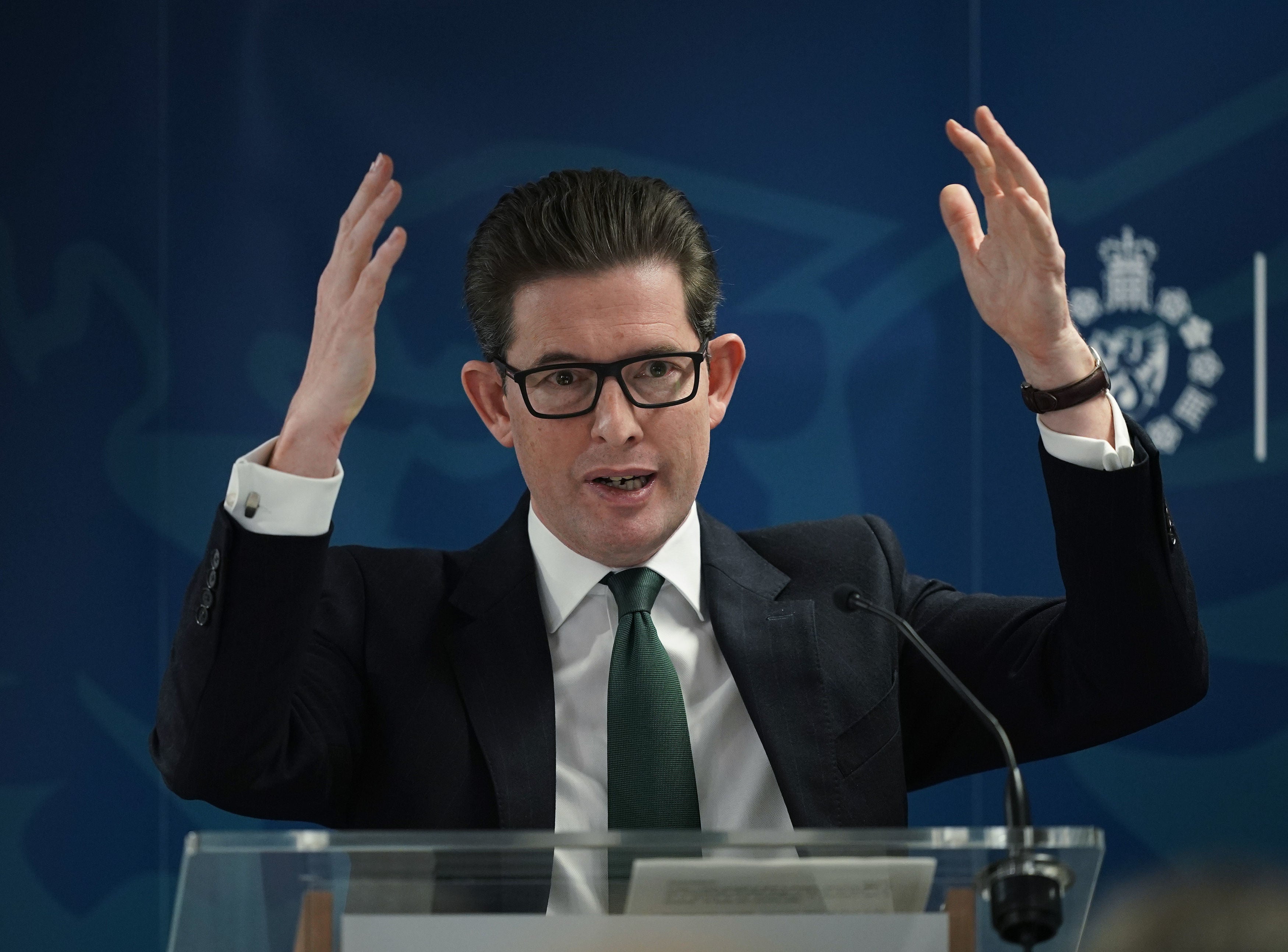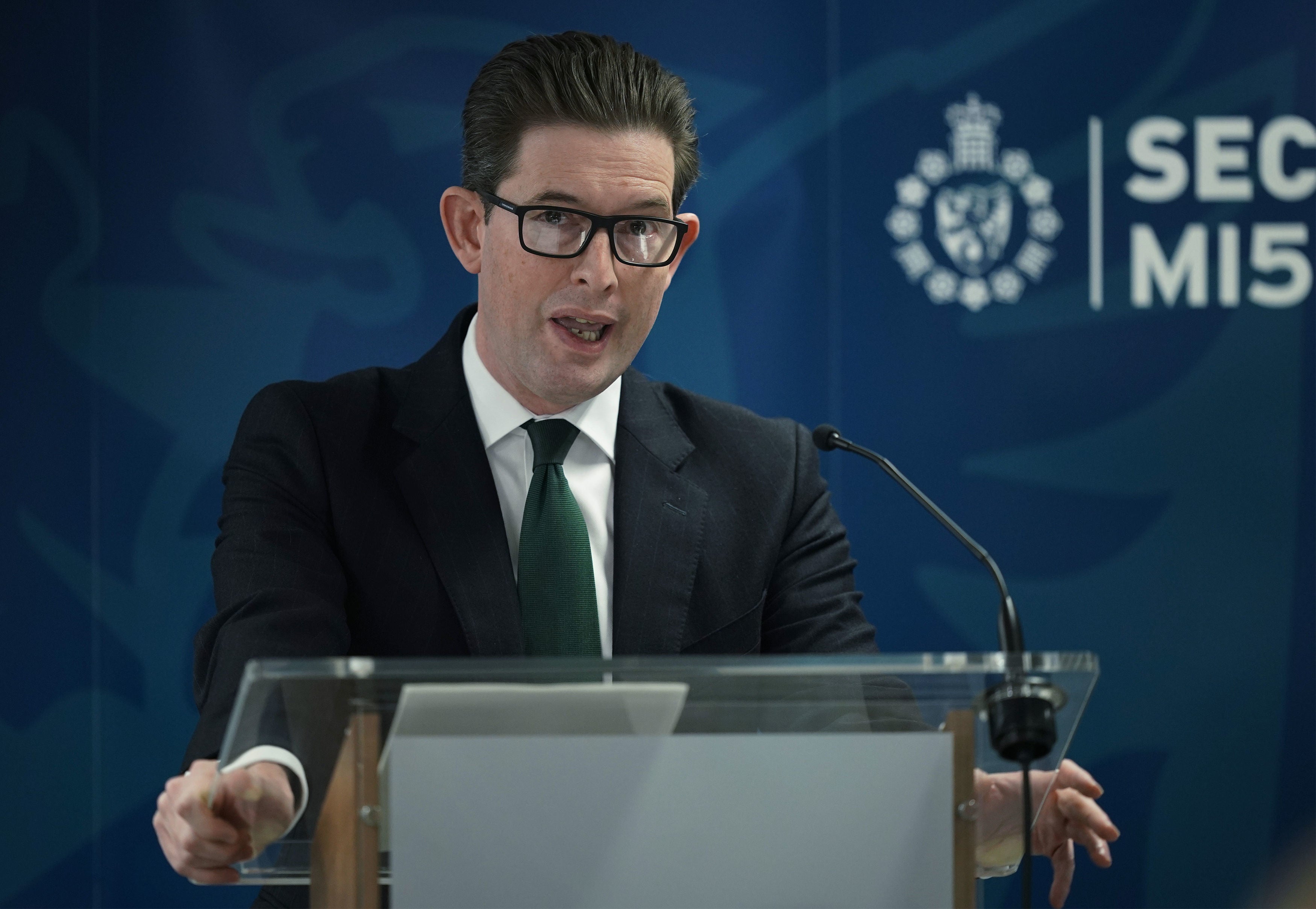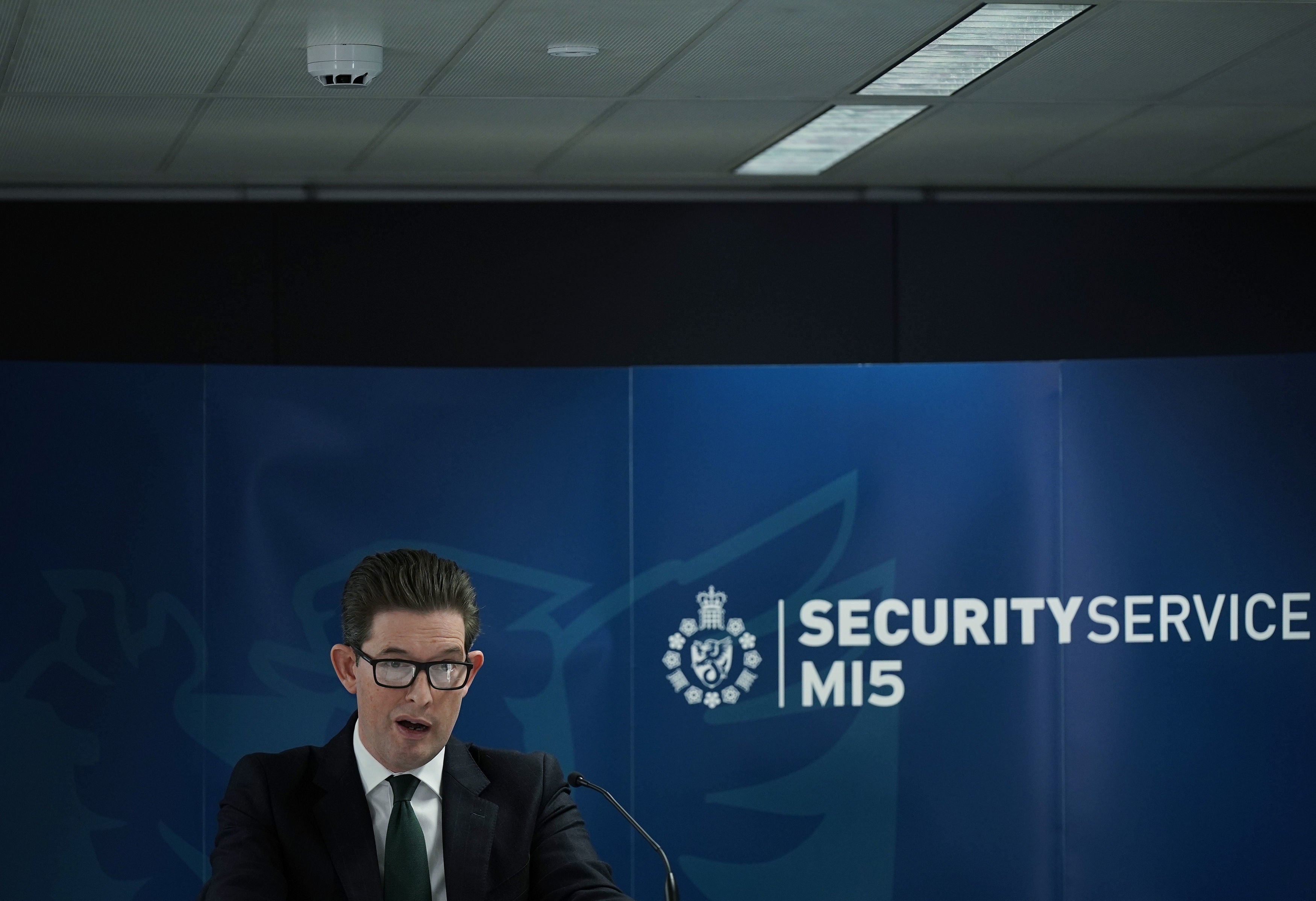Britain faces Russian security threat ‘for years to come’ over support for Ukraine, warns head of MI5
Moscow’s tactics include cyber attacks, disinformation, espionage and democratic interference, says Ken McCallum

Britain has become a particular focus of virulent animosity from Russia over its strong support for Ukraine in the war, with continuous action needed to counter the ongoing threat this poses, the director general of MI5 has warned.
Despite measures being taken by this country and other allies, partly modelled on those that were put in place following the Salisbury poisoning, the danger from the Kremlin will persist for years to come, said Ken McCallum.
Giving his annual outline of threats faced by the UK, Mr McCallum said MI5 “is making the biggest shifts in a generation” to deal with hostile states who are “adversaries on a massive scale and are not squeamish about the tactics they employ” in putting “our security, values and democratic institutions at stake”.
There are also threats from China and Iran, ranging from risks to infrastructure and attempts to subvert the political system to terror plots, some of which involve assassination. Ten threats to kill have come from Iran in the past 10 months, MI5 said.
The “distinctive importance of the UK’s support to Ukraine’s self-defence” has brought this country into the Kremlin’s firing line, said Mr McCallum. Combating illicit operations has led to 600 Russian officials being expelled from Europe, with 400 of them judged to have been spies. Britain has refused over 100 diplomatic visa applications on grounds of national security.
“This has struck the most significant strategic blow against the Russian intelligence services in recent European history, and, together with coordinated waves of sanctions, the scale has taken Putin by surprise,” said the MI5 chief. “We’ve continued to work intensively to make the UK the hardest possible operating environment for Russian covert action. And we’ll need to keep at it: alongside assassination attempts, the Russian covert toolkit includes cyber attacks, disinformation, espionage, democratic interference, and the use of Putin-aligned oligarchs and others as tools for influence.”

However, he continued: “I think we have to expect that Russian intent ... has a particular and distinctive form that will endure for years to come, which makes it more important that we are able to stamp out parts ... of their capability, because I think the intent will remain.”
Iran remains “a profoundly destabilising actor”, Mr McCallum said, “including by supplying the drones inflicting misery in Ukraine”. He said that the country had now also become a threat to Britain, through aggression by its intelligence services including “ambitions to kidnap or even kill British or UK-based individuals perceived as enemies of the regime”.
He added: “We have seen at least 10 such potential threats since January alone. We work at pace with domestic and international partners to disrupt this completely unacceptable activity.” The regime in Tehran will sometimes be prepared to take such “reckless action” in the West, while at other times it “will seek to lure people to other parts of the world, including Iran itself”, he said.
China’s regime is also conducting a campaign against those it considers enemies among its overseas diaspora, with assaults, harassment and forcible repatriation taking place, said Mr McCallum, explaining that this is likely to “increase further as President Xi consolidates power on an indefinite basis”.

While intimidating Chinese nationals who speak up against the state, Beijing is playing a long game in Britain by seeking to cultivate public figures, including prominent MPs and members of the House of Lords. Its agents also target such people “much earlier in their careers in public life, gradually building a debt of obligation”.
Mr McCallum also revealed that eight “potentially deadly” domestic terror plots had been disrupted since July 2021, which had emerged from a combination of Islamist and right-wing extremism.
The threat of violence from the hard right came from some very young people, one just 13 years old, drawing their inspiration from “a confused soup of hate” including material from “right-wing influencers”, he said. Some plotters had sought to acquire weapons manufactured using 3D technology.
Three-quarters of the terrorist investigations involved Islamists, mainly “radicalised terrorists seeking to conduct low-sophistication attacks”, said Mr McCallum. The consequences remain terrible, he added, as illustrated by the murder of MP Sir David Amess last year.





Join our commenting forum
Join thought-provoking conversations, follow other Independent readers and see their replies
Comments